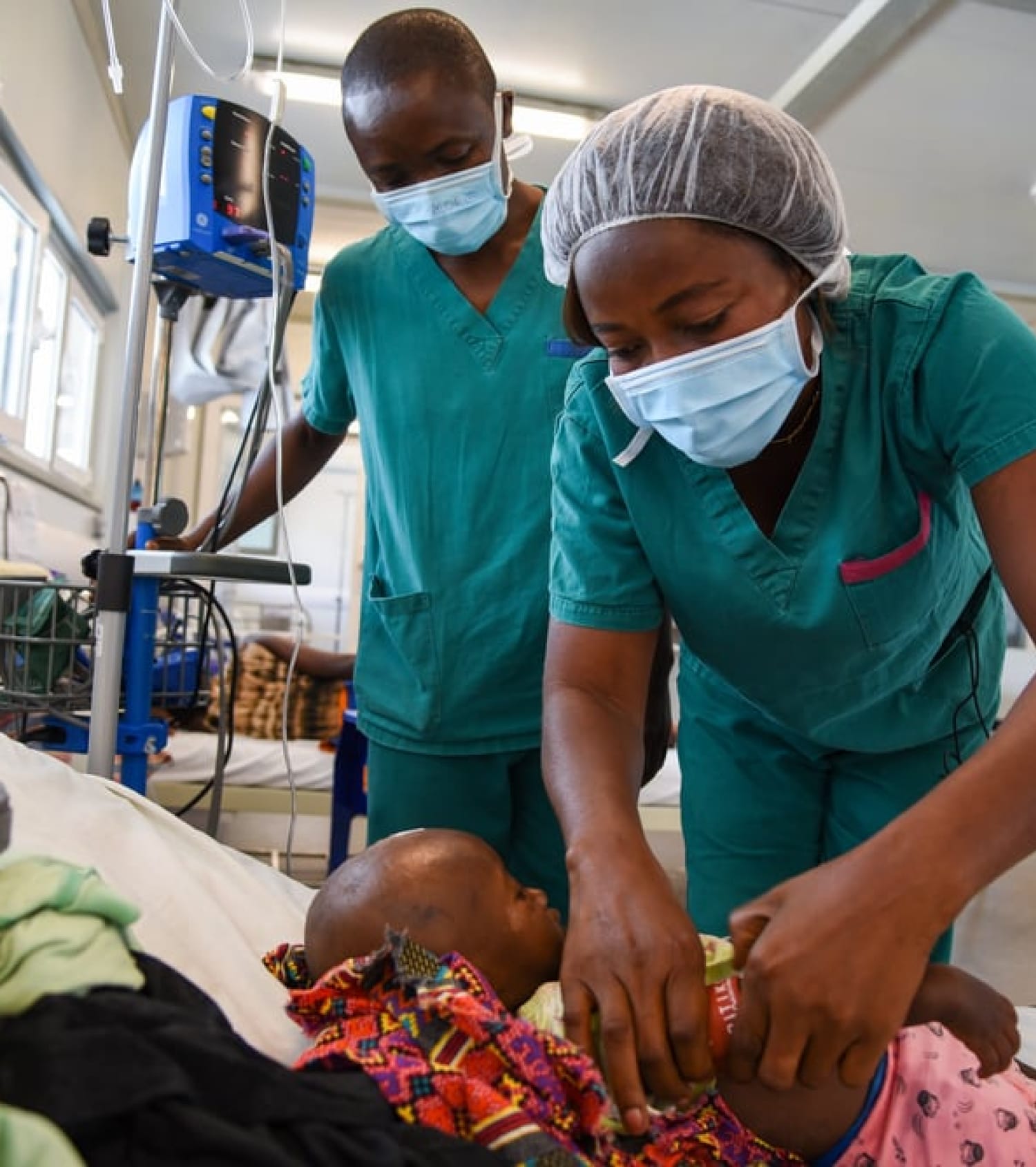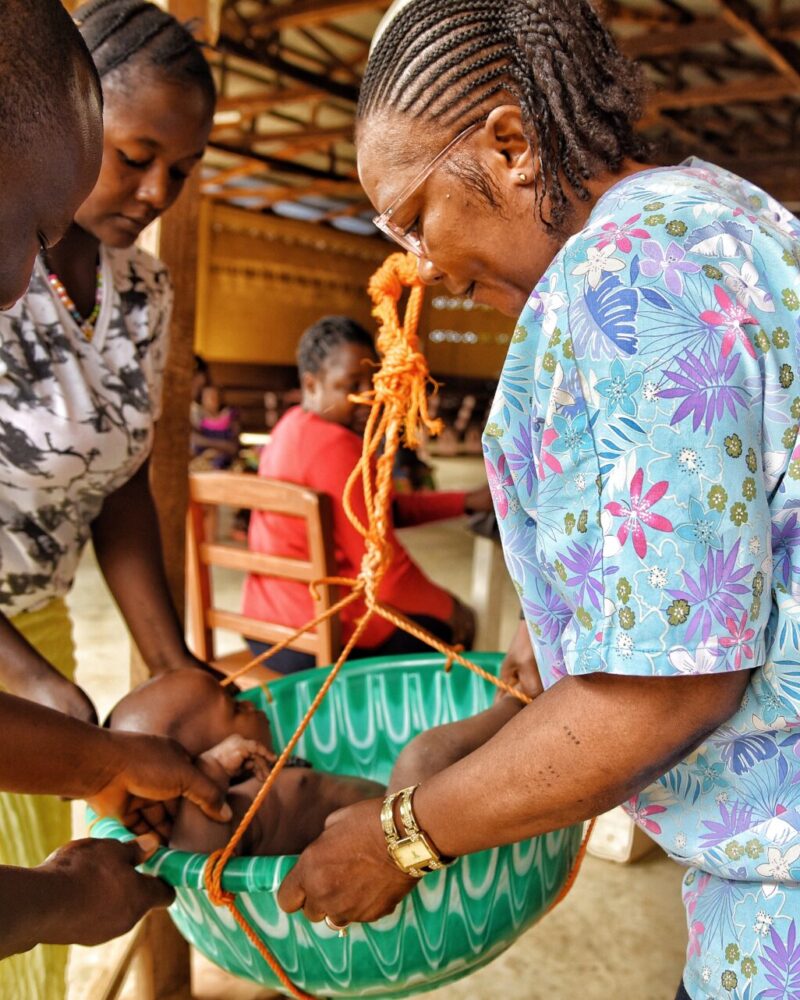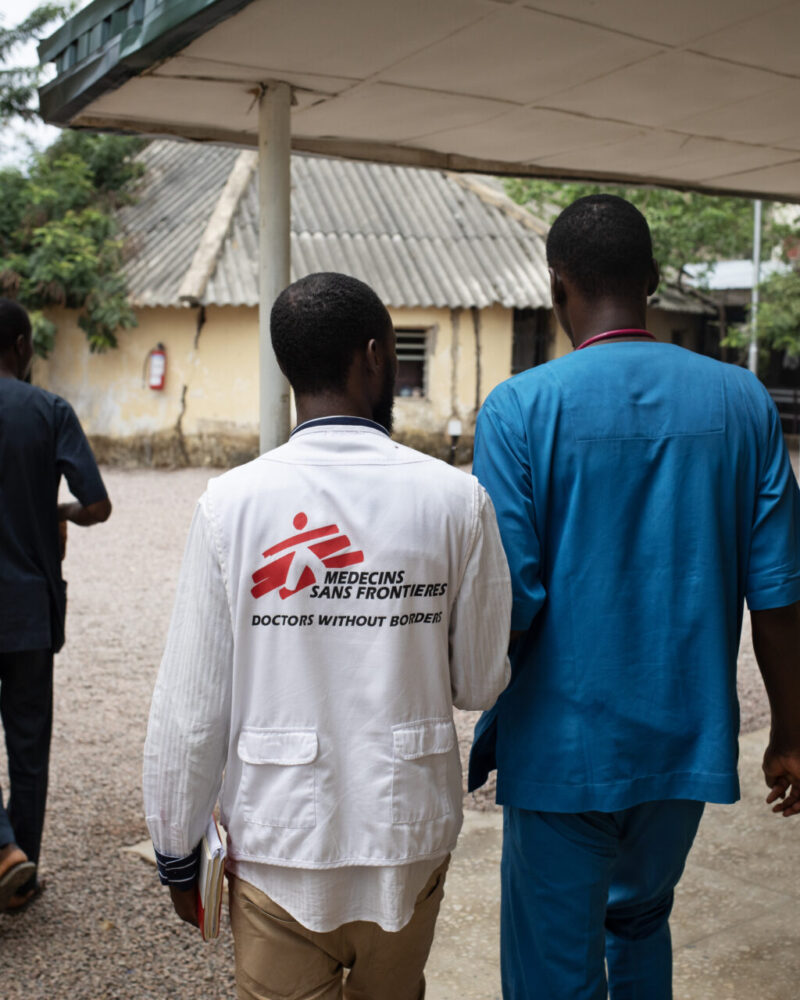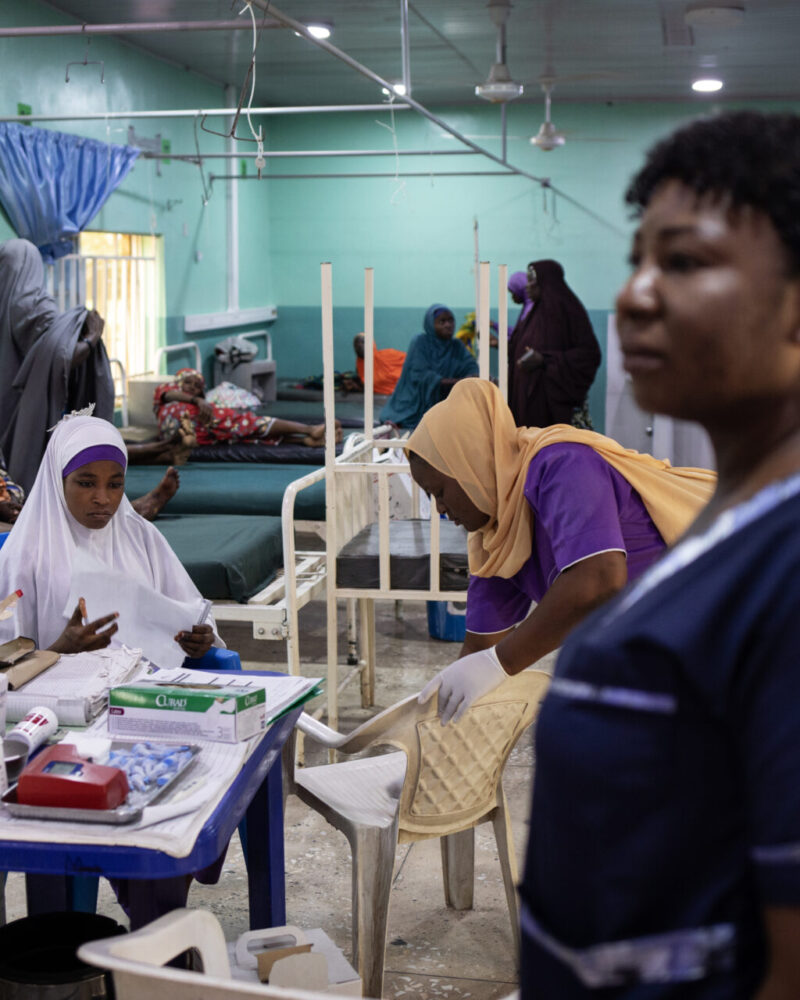
Learning programmes for MSF healthcare workers
Competency-based curriculums, work-based learning and individualised support
The MSF Academy for Healthcare aims to support specific MSF professions in the medical and public health field through competency-based curriculums and work-based training programmes, with a strong focus on locally hired staff. It does so by first identifying and assessing the learning needs, selecting or developing competency frameworks, content and tools and implementing the training programmes in the field.
Initiatives

The pedagogical approach
All of MSF Academy’s programmes are based on three pedagogical pillars: competency-based approach, learner-centred learning and structured work-based learning. The specificity of the approach lays in focusing on the support of the learners while on the job: guided practical training, provided directly in the work environment.
Structured work-based learning requires on-the-job trainers who can link the theoretical aspects of training with the daily professional practice. Therefore, our clinical mentors and tutors play a crucial role in this approach as they help the learner set their own goals and action plans to develop and improve individual competencies, aligned with the course curriculum. The clinical mentor or the tutor observes or follows up the learner’s progress at work, offers individual support and facilitates the reflection on their performance through self-assessments, debriefings and feedback.
Key components of our Pedagogical Approach
- Competency-based curriculums and assessments: we work on the basis of skills frameworks to identify the relevant competencies for the profiles targeted, in connection with the needs identified in MSF projects. Learning and assessment activities are then aligned with these competencies.
- Learner-centred learning: trainers and mentors are trained in facilitation and mentoring with the aim of supporting the learner's autonomy and empowerment.
- Work-based learning: we provide practical, supported on-the-job training, which links competency-based curriculum objectives with on-the-job training activities from the start.
- Clinical mentoring or tutoring: to structure work-based learning and encourage learners to apply their new learning to their professional activities. Professional clinical mentors or tutors accompany the learners as they put their learning into practice, either in person at the patient's bedside or remotely, depending on the competencies targeted by the training programme.
- Flexible delivery strategies: training busy staff who can rarely leave their project to be trained, or only for a limited period of time is a challenge. The MSF Academy’s goal is to bring the training to them as much as possible, in a way that is compatible with their work, and to progressively promote a learning culture.

Our learners
The specific groups of professionals trained are selected according to the operational priorities identified by MSF. The largest focus has been geared towards local healthcare workers providing nursing, midwifery or outpatient care. A second group of projects focuses on academic training for senior clinicians and medical managers within the organisation. A third group of projects aims to address the issue of antimicrobial resistance, focusing on upskilling and empowering nationally-hired supervisors in infection prevention and control, as well as antibiotic stewardship focal points.

Training on clinical mentoring and facilitation
As the transferring of learning in the workplace and bedside practice is the cornerstone of the MSF Academy’s pedagogical approach in most of our initiatives, we created the Training on clinical Facilitation (TOF) to strengthen skills on facilitation for groups of learners, and the Training on clinical Mentoring (TOM), which concentrates on developing competencies to support the learners at the patient’s bedside, in order to ensure the transfer of the learnings into the daily work.

e-learning
e-learning is a key pedagogical element in MSF Academy initiatives, being of central relevance in our hybrid and distance learning programmes, and it is used as a complement in our in-person programmes.
Participants access the e-learning content either through MSF’s e-learning platform, Tembo, or via our academic partner’s platform in the case of diplomas in partnership with a university.




